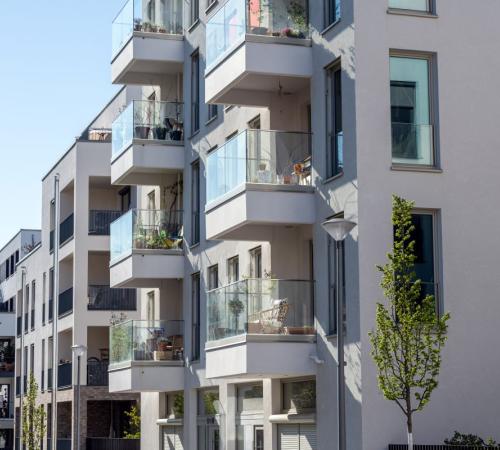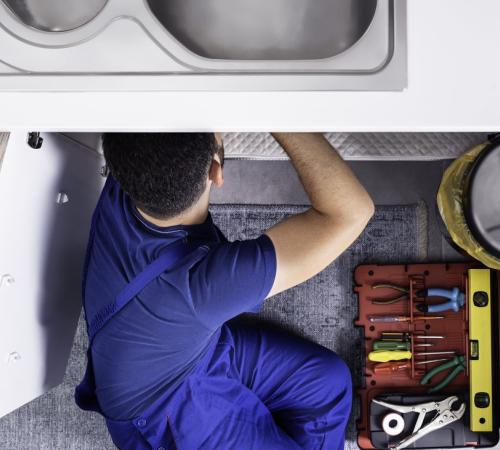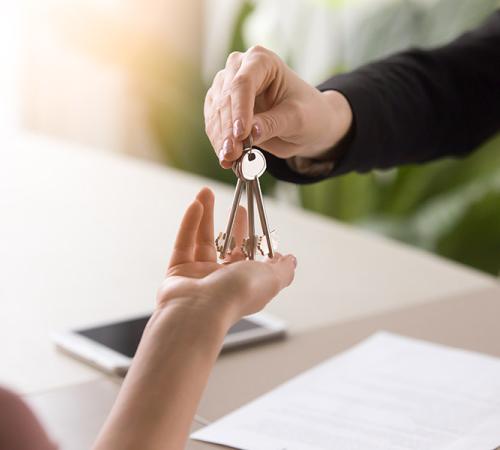

Here, we’ll explore what taxes landlords might pay, which expenses are tax-deductible, and how income tax is paid.
Disclaimer:
Managing rental properties is a complex business. At Hiscox, we want to see your investments thrive. Our articles offer insights into property management and landlord best practices. But these articles aren't professional advice. To find out more about a subject we cover here, please seek professional advice.
What is rental income?
Rental income is the money you get from letting a property to others. This includes rent payments plus any extra money tenants pay to use furniture or for services like cleaning, heating, and repairs.
Do landlords need to pay taxes?
You may have to pay tax on the money you earn from renting out property.
Rental income should be reported to His Majesty’s Revenue & Customs (HMRC) in a Self Assessment tax return (external link).
How much you pay depends on:
- Your personal circumstances (including income from your job, investments, and other sources)
- How much profit you make from renting.
The first £1,000 of rental property income is your ‘property allowance’. This is tax-free.
If your income from property rental is more than £2,500 after allowable expenses or over £10,000 before allowable expenses, you must report it in a Self Assessment tax return. (external link)
If your rental income is between £1,000 and £2,500, contact HMRC (external link).
If you want to qualify for State Pension and certain benefits, you might be eligible to pay voluntary Class 2 National Insurance contributions (external link) if being a landlord is your main job. If being a landlord is not your main job, you might be eligible for voluntary Class 3 National Insurance contributions (external link).1
If you sell a property that’s not your home, you might also owe Capital Gains Tax (CGT). This is a tax on money you ‘gain’ – the difference between what you paid for the property and how much you sold it for.
Most property sales require reporting and paying Capital Gains Tax (external link) within 60 days.2
Allowable expenses for landlords
To help make sure you’re only taxed on your true profits (your net rental income), you can deduct certain costs, like maintenance, repairs, utilities, and insurance. These costs are known as ‘allowable expenses’.
These expenses might include:
- Repairs and maintenance
- Utility bills (if you pay them)
- Insurance costs
- Property management fees
- Letting agent fees
- Accountancy fees for managing your rental income
- Travel expenses related to managing the property.
There are strict rules determining what qualifies as an allowable expense. These expenses must be directly related to renting out the property and necessary for its upkeep. They should be ‘wholly and exclusively (external link)’ for the purpose of renting out the property.
For example, if you hire a plumber to replace a faulty shower unit in your rental property, and the total cost is £400.
This is an allowable expense because:
- The repair is necessary to maintain the property’s livability
- It’s directly related to the rental property
- It maintains the property’s existing condition rather than improving it.
In this example, you could claim the full £400 as an allowable expense.
If an expense has any personal use or benefit, you can’t claim the full cost as an expense.3 However, you can claim part expenses for costs that are not ‘wholly and exclusively’ related to your property rental business.
For example, you need to replace the kitchen floor, and you find a deal on laminate flooring offering 20 square metres for £200. You buy the full 20 square metres despite only needing 10 square metres for your rental property. You plan to use the extra half in your own home.
Since the full £200 cost wasn’t incurred solely for the property, you can’t claim the entire amount as a business expense.
However, the portion you used for the rental property was £100 (one-half of £200). This £100 can be claimed as an allowable expense.
You must report your expenses honestly to avoid penalties and fines.4
For the full list of what you can and cannot claim, visit GOV.UK (external link).
Record keeping and documentation
It’s important to keep detailed records of all rental income and expenses, including receipts, invoices, rent books, and bank statements.
After the tax year (5 April), you must submit your expenses to His Majesty’s Revenue & Customs (HMRC) via a Self Assessment tax return (external link).
Organising your filing system by tax year and keeping backups of important documents can make completing your self-assessment tax return straightforward.
You should keep all records for at least 22 months after the tax year they relate to. If HMRC investigates you, they might ask for historical records.5
Visit GOV.UK for more information on keeping your pay and tax records (external link).
Landlord tax FAQs
When should landlords file their taxes?
New landlords must register with HMRC for Self Assessment (external link) if they don’t already file a tax return. The registration deadline is 5 October.
Your Self Assessment tax return (external link) must be submitted to HMRC each year.
Paper tax returns must be submitted by midnight on 31 October.
Online tax returns must be submitted by midnight on 31 January.6
Can I do my taxes myself?
You can complete your Self Assessment yourself.
To fill in a Self Assessment tax return, you may need:
- Your Unique Taxpayer Reference (UTR), National Insurance number, issue address, and personal details
- Your employer reference, if you have one
- Details of your gross income covering the full tax year. Keep records of payslips, invoices, receipts, statements, your P60 and P45 to use as evidence if needed
- Details of any self-employment expenses
- A list of charity or pension contributions that may entitle you to tax relief
- Student loan repayment figures for the tax year.
To learn more, read our guide to filling in a Self Assessment tax return.
Consulting an accountant for tax return support could save you time, money, and hassle by ensuring accuracy and identifying deductions and allowances.
References
- https://www.gov.uk/renting-out-a-property/paying-tax
- https://www.gov.uk/report-and-pay-your-capital-gains-tax/if-you-sold-a-property-in-the-uk-on-or-after-6-april-2020
- https://www.gov.uk/guidance/income-tax-when-you-rent-out-a-property-case-studies
- https://www.gov.uk/guidance/income-tax-when-you-rent-out-a-property-case-studies
- https://www.gov.uk/keeping-your-pay-tax-records/how-long-to-keep-your-records
- https://www.gov.uk/self-assessment-tax-returns/deadlines






